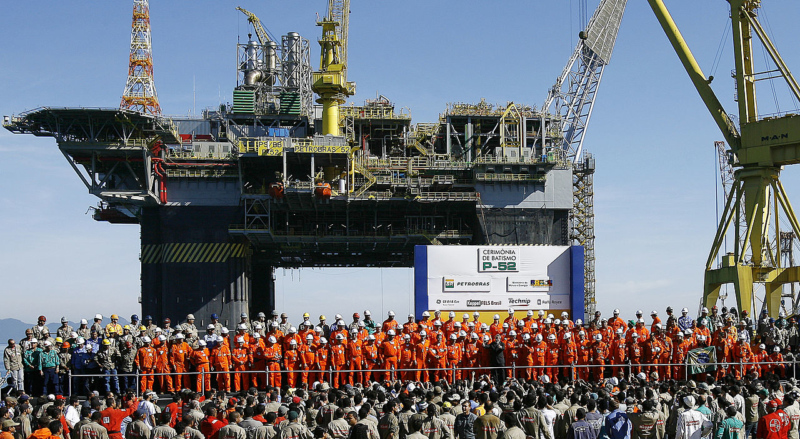The Politics Of Disaster Relief
After a 7.0 magnitude earthquake struck Haiti, the aftershock reached China in ways that few anticipated.The earthquake forced Chinese leaders to navigate the tricky politics of disaster relief.
Following the collapse in global crude oil and iron ore prices, a high level roundtable in Rio de Janeiro, hosted by the Inter-American Dialogue, Brazilian Petroleum Institute and Federal University of Rio de Janeiro, examined the adjustments Brazil must make to attract investment and maintain output levels.
Crude oil markets are currently oversupplied, with OPEC producers ramping up production to maintain market share and US shale output still strong while global demand growth has been sluggish. Looking ahead, current prices of about $45-$50 per barrel are likely to persist for an extended period, the panelists noted, though no one knows for how long.
To remain competitive, Brazil will have to revise its regulations and reverse many of the reforms instituted just a few years ago. Most importantly, the government needs to open the pre-salt to more participation from private companies and resume regular bid rounds, participants said. In 2010, an energy reform required Petrobras to be sole operator with a minimum 30% stake in all pre-salt fields – a responsibility that has become unsustainable as the company grapples with excessive debt. A proposal in the senate to reverse this rule could be approved next year, many analysts believe.
Awarding more pre-salt acreage could also bring the government billions of dollars in signing bonuses at a time when government revenues are down due to Brazil's slowing economy. The government has auctioned only one pre-salt field since the prolific offshore resources were discovered in 2007.
To generate cash, Petrobras has announced a major divestment plan, and participants suggested that the company focus its asset sales in the natural gas sector, where Petrobras' vertically integrated model discourages independent companies from entering Brazil because they are dependent on the state oil company to access gas infrastructure.
Industry representatives also say Brazil must provide more predictable fiscal and environmental licensing processes and revise local content requirements to allow companies to procure services and equipment at more competitive prices.
Brazil's mining sector faces similar challenges. Global prices for iron ore, one of Brazil's key exports, have plummeted since 2011. Demand from China, the largest iron importer, has weakened but global supplies have remained strong, generating an intense battle for market share. Brazil is the world's second largest iron ore producer.
The biggest challenges to Brazil's mining sector are a complex environmental licensing process and insufficient infrastructure, including rail and energy infrastructure. Energy-intensive sectors like aluminum have also suffered from high electricity costs since the government increased tariffs over the past two years.
Though rich in energy and mining resources, Brazil’s negative economic outlook, the Petrobras scandal and the drop in commodity prices require the Brazilian government to make important changes in order to sustain investment in these industries.
After a 7.0 magnitude earthquake struck Haiti, the aftershock reached China in ways that few anticipated.The earthquake forced Chinese leaders to navigate the tricky politics of disaster relief.
What should we expect from a newly powerful Brazil? Does the country have the capacity and leadership to be a central actor in addressing critical global and regional problems?
President Lula da Silva triumphantly announced that he and his Turkish counterpart had persuaded Iran to shift a major part of its uranium enrichment program overseas—an objective that had previously eluded the US and other world powers. Washington, however, was not applauding.
 Ricardo Stuckert / CC BY 3.0 BR / Wikimedia Commons
Ricardo Stuckert / CC BY 3.0 BR / Wikimedia Commons